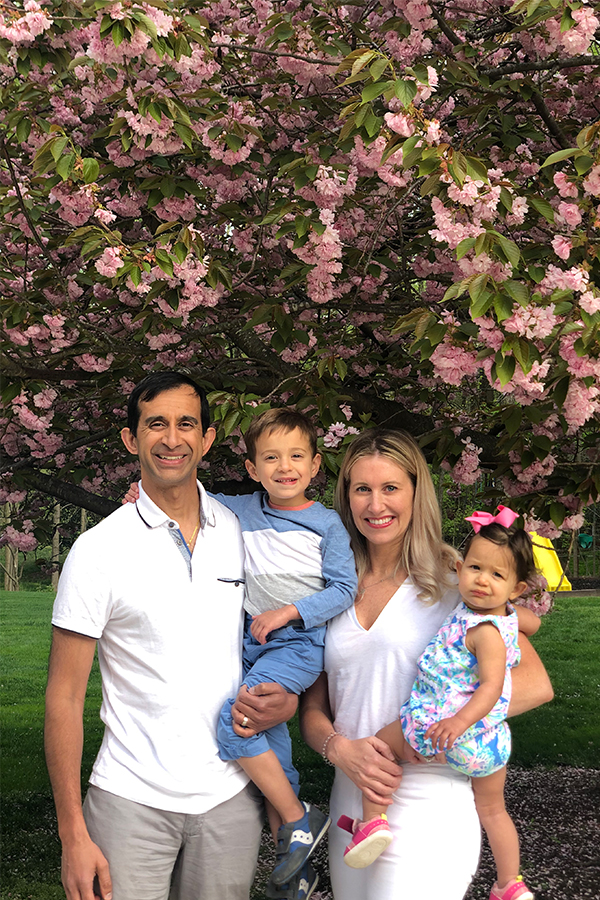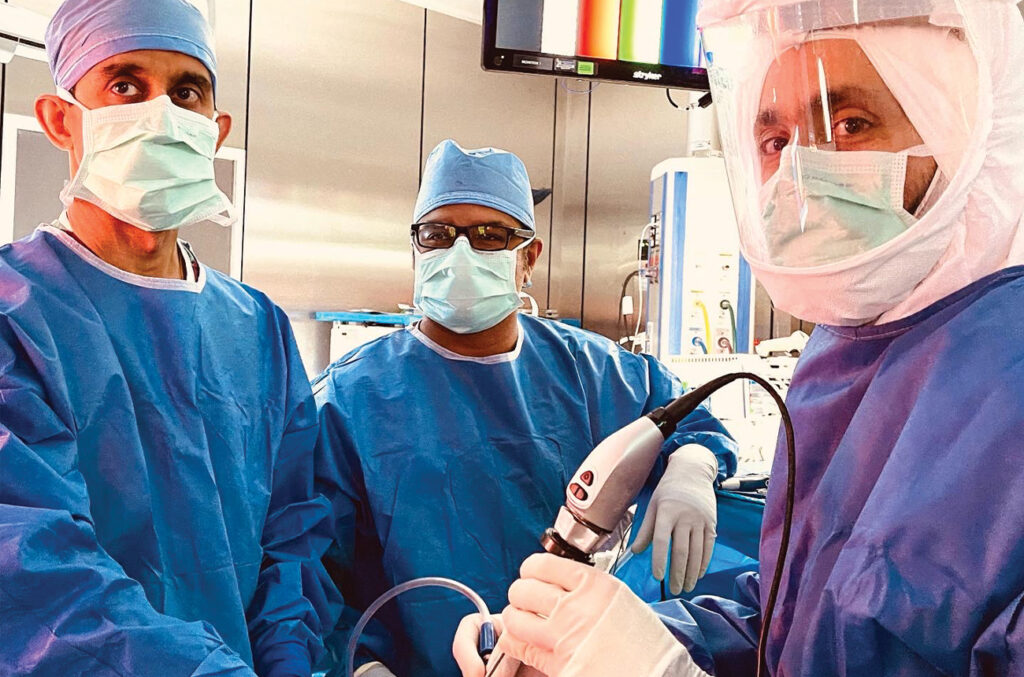Inova Neurosciences Services Line has just appointed Washington University alumnus Nilesh A. Vyas, MD, to be division chief, Neurosurgery.
Vyas completed his medical training at Georgetown University Medical Center, his residency at Washington University School of Medicine and his fellowship in neurosurgery at the University of Miami/Jackson Memorial Hospital.
Vyas has been a practicing neurosurgeon at Inova Fairfax Medical Campus since 2011 and among his current roles he serves as director of Cerebrovascular Neurosurgery, Director of Skull-Base Neurosurgery and associate chair, Neurosurgery-Based Programs.
What are you most excited for in your new leadership role?
The opportunity to work with my colleagues across the entire health system to ensure that neurosurgery continues to improve and expand its role.
How will this role change the work you do at Inova?
I will now be responsible for all neurosurgery operations and programs across the five- hospital health system.

What do you find most rewarding about your work?
The best part of my job is still and will always be the combination of direct patient care and surgery as well as the education of residents. I had a day with our first Inova Neurosurgery resident where I said that it was going to be just an ordinary day because it was “just an ACDF” [anterior cervical discectomy and fusion] that we would be doing. The resident replied that it was fantastic because it was an ACDF, and that was a great surgery for him to participate in at his junior level, and the resident was right.
What is your most memorable moment training at WashU?
I can remember a thousand different events that I can recall immediately, but I will spare you that length. The best year of training was for sure the chief resident year. The best day for me was Christmas Eve when four patients came in on call with subarachnoid hemorrhages. All four were not able to be coiled safely and we had to clip each of them. So, both chief residents were in parallel rooms with Drs. Dacey and Rich to clip two each back to back. What more could a chief resident ask for as a Christmas gift?
What makes WashU’s neurosurgery residency program stand out?
After residency, fellowship was not new —it was finishing school to learn fine points of the subspecialty within neurosurgery that I had chosen, skull-base and vascular. Since completing my residency I have not felt that there was a single case in practice that seemed foreign or beyond my capability.
Do you have any advice for medical students interested in neurosurgery?
If you choose to pursue neurosurgery, you will never be bored. You will always feel challenged. You will be surrounded by peers that you respect and respect you. You will work very hard, but make sure it is what you really want to do because it is a calling not just a job.
